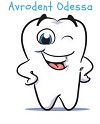The therapy is based on a test that allows physicians to identify the causes of patient’s fear.
British scientists have developed cognitive-behavioral therapy that helps children and adults not to be afraid of going to the dentist, according to an article published in the British Dental Journal.
“People with dentophobia have to prick sedatives and painkillers so that they relax and allow treatment.
However, this does not help them deal with fear in the long term, and our methodology is aimed specifically at solving this problem.
Five sessions of our behavioral therapy are enough so that such patients do not need to be sedated when they visit the dental office”, said Tim Newton of King’s College London (UK).
Newton and his colleagues tested their methodology on several dozens volunteers.
They observed oral hygiene, dental health and the behaviour of participants in the experiment, some of whom were terrified of dentists, drill machines and dental offices.
The therapy is based on a test that allows physicians to identify the reasons for the patient’s fear, which further makes it possible purposefully deal with this phobia during cognitive-behavioral therapy sessions.
According to Newton, the greatest fear among the majority of participants was caused by a drill or injections, and only a small part were afraid of the doctors themselves or other attributes of dentistry.
